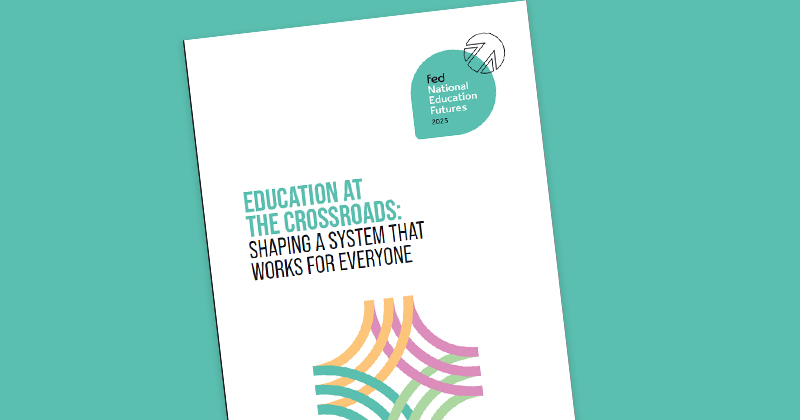Schools should produce inclusion audits and follow “enforceable” national inclusivity standards, suggests a new report that sets out a blueprint for “shaping a system that works for everyone”.
The Foundation of Education Development (FED), which advocates for a long-term approach to education policy, said a national inclusion framework would help set “consistent and enforceable” expectations for inclusive practice.
Despite a national focus on boosting inclusion, there was no “shared statutory definition” of what it meant, it said.
Carl Ward, the foundation’s chair, said the blueprint emerged after a year-long consultation with thousands of sector leaders. Schools and councils were already trialling some aspects.
How would inclusion standards work?
A framework would define “nationally agreed inclusion standards” across a range of areas, including admissions, attendance, curriculum, and assessment, FED said. The standards would also be built into EHCPs, transition plans, inspections and leadership qualifications.
Under the proposal, all schools and colleges would produce an inclusion audit that would form part of their annual improvement plans. But extra funding would be needed to train inclusion teams to meet standards.
“What became very clear from the vast majority of stakeholders is that there was a need for a national commitment to all learners on what inclusion is, how it works in the system and how it can operate,” said Ward, who described the current system as “broken“.
FED wants the government to set up a national taskforce to deliver the framework, and wants “enforceable expectations”. It proposes the reform of accountability metrics such as Progress 8 to “reflect inclusive outcomes”.

Ward said the taskforce would decide how enforceability would work, but insisted there needed to be accountability for schools and all educational establishments, local authorities and metro mayor regions.
The framework could help improve a “fragmented and overstretched” system of support. The report said at present families were often forced to relocate just to access educational support.
Meanwhile, attainment-focused accountability systems were driving exclusionary behaviours such as “off-rolling” – the removal of pupils from school rolls to protect results – which disproportionately affected disadvantaged children or those with SEND.
Essex council, which introduced its own inclusion framework in 2021, said support included inclusion reviews, training and access to professionals.
The approach “empowers schools to implement inclusive, sustainable early intervention”, and enabled “creative solutions to be developed”, said Tony Ball, Essex’s member for education excellence.
What are the hurdles?
Karen Burns, the chief executive of the Victorious Academies Trust in Greater Manchester, said a national framework had “real potential” to bring “greater clarity and equity” across the system.
But it would need planning and investment, she said.
Claire Dorer, the chief executive of the National Association of Special Schools (NASS), said that framework “without a strong mechanism for enforcement and accountability likely offers no additional value”.
Frameworks also had the “potential danger” to reduce some people’s engagement to the level of compliance.
Paul Whiteman, the general secretary of the school leaders’ union NAHT, welcomed the plans. “Further improving inclusion across schools and wider society requires not just good intentions, but tangible commitment through cross-departmental government support and increased and sustained investment, as well as partnership-working across and between services.”
What are the other proposals?
FED also said teachers should receive mandatory training in inclusive pedagogy and curriculum reforms to include more diverse histories and languages, pointing out that schools still failed to reflect the communities they served.
It called for a future education workforce that was more “adaptable, inclusive and sustainable” and proposed a national strategy that made education more appealing, prioritised professional development and increased flexibility in the profession.
The study also highlighted the need for a more “collaborative and coherent” system across academy trusts, schools and education partnerships, urging the government to embed collaboration as “core infrastructure”.















Your thoughts